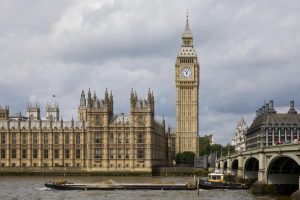Drivers could be penalised with a £70 fine, if found to be parking on the pavements across the UK under the Governments new proposals to ban kerb side parking.
Currently, pavement parking is only banned in London. But House of Commons Transport Committee inquiry into pavement parking report in 2019, found that pavement parking creates real problems, including for those with visual or mobility impairments, those assisted by guide dogs, and those needing mobility aids such as wheelchairs, scooters, walkers, as well as those who need to use footpaths with children.
This week the Governments consultation, that was set out earlier this year has gone live, with the aim to address this, potentially enabling councils to fine drivers £70 for using the pavement to park, similar to the fines imposed for parking on double yellow lines. This is to give more powers to the local councils to make it safer for the whole community. It is currently an offence to cause an unnecessary obstruction on the highway, however this is only enforceable by the police.
A Local Andover resident, spoke to Andover Radio 95.5fm about her frustrations with vehicles parked on pavements,
“Being a mother of 2, I know only too well how difficult it can be to squeeze a buggy down the side of a parked car with another child in tow, but it was when I started to work for a disability charity that I realised just selfish some people can be. Trying to push heavy wheelchairs past parked cars is near on impossible, as is, then finding a safe place to cross the road. I think more should be done to make drivers more considerate to our community”
This week three options are proposed in the consultation; –
- Improving the traffic regulation order process to make it easier for councils to prohibit pavement parking in their areas
- Giving councils powers to fine drivers who park on paths
- A London-style nationwide ban on pavement parking.
Transport Secretary Grant Shapps said:
“Parking on pavements means wheelchair users, visually impaired people and parents with pushchairs can be forced into the road, which is not only dangerous but discourages people from making journeys.
A key part of our green, post-COVID recovery will be encouraging more people to choose active travel, such as walking, so it is vital that we make the nation’s pavements accessible for everyone.
Pavement parking presents a clear safety risk when parked cars occupy the pavement and force vulnerable pedestrians to move into the road.”
Disabled people say pavement parking is a significant barrier to carrying out daily journeys. Recent research from the charity Guide Dogs shows that 32% of people with vision impairments and 48% of wheelchair users were less willing to go out on their own because of pavement parking, decreasing independence and contributing towards isolation.
One local resident said,
“As a wheelchair users get very anxious going out, I just never know if I will get stuck and so I rarely get out if I’m honest”
As many streets were built decades and centuries before the high levels of vehicles currently on roads, any measures will need to ensure the free flow of traffic and access for the emergency services.
The consultation is the government’s latest step to deliver on commitments to make transport equally accessible for all users by 2030, as set out in the Inclusive Transport Strategy.
Stephen Edwards, Director of Policy and Communications at Living Streets, said:
“We’re regularly contacted by disabled and older people who feel trapped in their homes because there is not enough room on the pavement for wheelchairs or mobility scooters.
This has impacted more people during the pandemic with blocked pavements affecting everyone’s ability to physically distance.”
Blanche Shackleton, Head of Policy, Public Affairs and Campaigns at Guide Dogs, said:
“For many people with sight loss, cars and vans parked on the pavement make our streets stressful and dangerous to navigate. At any time, you might be forced out into the road with traffic that you cannot see.
When every journey is an ordeal, simply going out independently can become daunting.”
The consultation comes as Transport Secretary Grant Shapps steps up efforts to encourage active travel – such as walking – as part of a green, post-COVID-19 recovery, and level up road quality across the country.
The government announced £2 billion in May to get more people walking and cycling, and £2.5 billion in the Budget towards repairing potholes as part of the biggest nationwide programme ever announced.
On top of this, the government is also investing more than £27 billion to improve roads across the country and boost connectivity between our towns and cities.
The Government also outlined how it still sees a major role for cars and other private vehicles, and said any future plans would need to take this into consideration.
Also unknown is how any such move could impact emergency vehicle access.
Does pavement parking affect you? Can you see an outright ban working? We would love to hear your thoughts at Andover Radio.
To access the consultation, click here





















